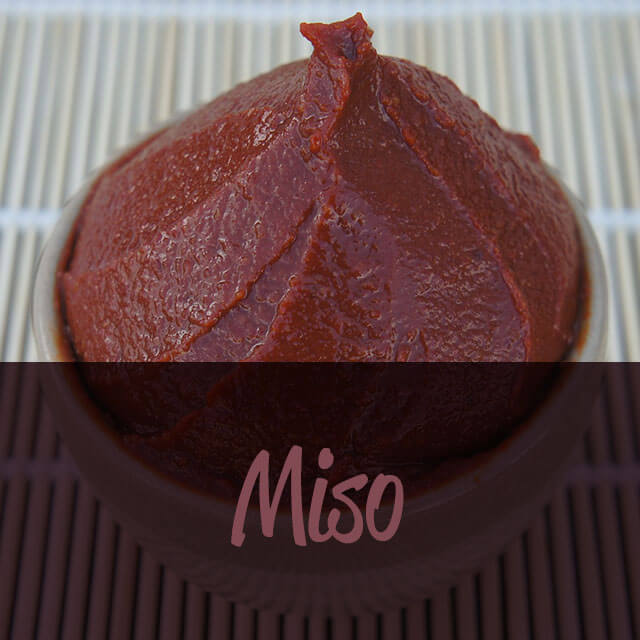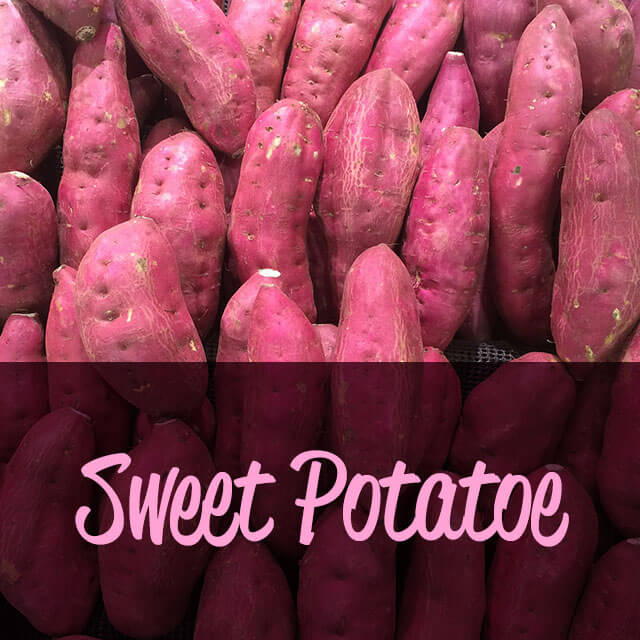Blog
A gut feeling: The gut-brain connection
Orsha Magyar, CEO & Founder, NeuroTrition Inc.March 13, 2017
Your gut garden
Your gut microbiome is like a lush tropical garden home to trillions of microbes, comprising approximately 1800 different phyla and 40,000 bacterial species—this is 1.3 to 10 times the number of human cells! The various species of bacteria, your microbiota, interact with the rest of your body and affect how your body works.
Now, if you’ve ever had that “gut feeling” that your gut talked to your brain, and influenced how you felt, thought or behaved … you were right (so always listen to your gut, seriously!) This concept of our gut influencing our brain has existed for almost two centuries. It has even been widely integrated into our everyday vernacular:
-
-
- “gut feelings”
-
- “gut instinct”
-
- “gutted”
-
- “gutsy”
-
- “it takes guts”
-
- “butterflies in our tummy”
- “sick to my stomach”
-
However, it was not until the advent of brain imaging that neuroscientists really began to appreciate the influence of our gut-brain axis on our brain and mental health.
“Gut, please meet brain”
Your gut and brain do literally talk to each other, and the gut microbiota is now seen as a key regulator of the gut-brain axis.
Scientists are studying just how exactly our microbiome communicates with our central nervous system (including the brain). So far, they’ve identified that our gut and brain chat through 1) our immune system, 2) via a special nerve called the vagus nerve, 3) through special short chain fatty acids, and 4) via our enteric nervous system (our gut’s own nervous system).
Psychobiotics: more than just psychobabble
Targeting the brain via the microbiome is a massive paradigm shift in neuroscience and psychiatry, and has led to the concept of psychobiotics:
- Psychobiotics = Live bacteria (probiotics) which, when ingested, have mental health benefits AND prebiotics, which enhance the growth of beneficial gut bacteria.
- Probiotics = Your good gut bugs (pro=helpful, bio=alive). They’re alive inside you, and they’re helpful.
- Prebiotics = The FOOD for your probiotics (pre = before; I know, scientists are just so creative in their naming, right?)
Different life stages, different bugs
We are starting to recognize that your brain is influenced by gut bugs throughout your entire life!
- Early Life: Babies are initially exposed to microbes from the mother via how they are born and this influences the very first seeding of their microbiome. Then, whether they are breast-or bottle-fed further impacts development of their microbiota. Early life stress and antibiotics may profoundly alter how our gut and brain talk to one another.
- Adolescence: There’s a role for the microbiota in anxiety and cognitive behaviours at this developmental time window.
- Aging: As we age, our microbiota diversify and there is increased inflammatory tone in the brain, ultimately resulting in malfunction and damage of brain cells.
Nutritional psychiatry: going beyond the bandaid
There is considerable evidence to suggest a role for your microbiota in neuropsychiatric conditions.
Autism Spectrum Disorders (ASD)
- 90% of children with ASD have gut issues, including constipation, diarrhea, abdominal pain, and poor nutritional absorption.
- Gastrointestinal disorders in autism are associated with dysregulation of the gut microbiota, and the extent of gut issues can predict the severity of autistic behaviour.
- Levels of certain gut bugs are altered in faecal samples from autistic children, and they show greater faecal microbiota diversity than healthy children.
Depression
- The gut microbiota are capable of regulating the hypothalamus-pituitary axis and the immune system.
- There is evidence of dysregulated microbiota in depression.
- There are increased circulating levels of antibodies against bad gut bugs in depressed patients, suggesting bacteria moving from gut to blood stream.
Schizophrenia
- Chronic gastrointestinal symptoms, such as gastritis and colitis, often accompany schizophrenia.
- There is an association between birth by caesarean section and the risk of developing psychosis.
- There is increased urinary excretion of bad gut bug metabolites in schizophrenic patients.
The preclinical (rodent) work is corroborating pretty nicely with the clinical (human) work on autism, depression and schizophrenia. What’s more, preclinical work is finding some cool stuff out about anxiety, ALS (amyotropic lateral sclerosis) and Alzheimer’s:
Alzhiemer’s:
Prebiotics improve cognitive function and reduce pro-inflammatory cytokines.
Anxiety:
Prebiotics reduce pro-inflammatory cytokines.
ALS:
Probiotics reduce motor neuron death, reduce muscular atrophy, increase serum folate, increase vitamin B12, and reduce homocysteine.
So what do I do?
Probiotics
Clearly, we love bugs at NeuroTrition. Gut bugs, that is. We love them so much that we prescribe daily probiotic-rich foods to our clients (anywhere from 1 to 3 times a day).
Our Fav Probiotics:
Miso, tempeh, kimchi, yogurt, real sourdough bread, raw sauerkraut (and other fermented veggies), kefir, kombucha, raw, fermented salsa
Prebiotics
We respect our “symbiotic” relationship with our gut bugs, in that if we help them (by feeding them what they need), they in turn help us.
So we add prebiotics to the NeuroTrition Rx for brain and mental health!
In case you’re wondering, what the heck IS a prebiotic, there are three criteria a food must meet to be called a “prebiotic”:
- It would need to go through most of your gastrointestinal system, reaching your colon intact;
- It would be fermented by those intestinal microbes; and finally,
- It would stimulate the “good” microbes associated with health.
The more of these prebiotics we eat, the more healthy probiotics will grow in our gastrointestinal system. This is known as the “prebiotic effect” and it can be used to increase the number of “good” microbes, and decrease the activity of the “bad” ones.
Our NeuroTeam’s fav prebiotics:
Sweet potato, kale, blueberries, avocado, hemp & chia seeds, walnuts, quinoa, cacao
Other foods rich in prebiotics that didn’t make it on our NeuroTeam’s Favs (but are super foods for your gut bugs) are:
Cooked onion, raw onion, raw jerusalem artichoke, raw asparagus, raw dandelion greens, raw garlic, raw leek, cruciferous vegetables (eg. broccoli, cauliflower), beans
Some extra gut bug love
We believe, first and foremost, in the power of whole foods for optimum brain and mental health—and supplements as a “supplement” to a healthy diet.
However, we respect that this is not always possible.
We are also passionately driven by what the science is saying and, for gut-brain health we are seeing the value in probiotics (the ones that have been studied the most for their brainy benefits are lactobacillus, and bifidobacterium). It’s as easy as 1-2-3 to find a top notch probiotic, just make sure it’s:
- At least 10 billion active cultures and 10 strains
- Refrigerated (or it better have a really good enteric coating!)
- “Third party tested,” (this means someone outside of the company has tested it and says it’s a quality product)
References:
Coury, DL., Ashwood, P., Fasano, A., Fuchs, G., Geraghty, M, Kaul A, et al. (2012). Gastrointestinal conditions in children with autism spectrum disorder: developing a research agenda. Pediatrics, 130(Supplement):S160–168.
Cryan, JF. (2016). Stress and the Microbiota-Gut-Brain Axis: An Evolving Concept in Psychiatry. The Canadian Journal of Psychiatry, 61(4), 201-203.
Finegold, SM., Downes, J. & Summanen, PH. (2012). Microbiology of regressive autism. Anaerobe,18(2), 260–262.
Finegold, SM., Dowd, SE., Gontcharova, V., Liu, C., Henley, KE., Wolcott, RD, et al. (2010). Pyrosequencing study of fecal microflora of autistic and control children. Anaerobe,16(4), 444–453.
Jia, S. et al. (2016). Chitosan oligosaccharides alleviate cognitive deficits in an amyloid-b 1-42-induced rat model of Alzheimer disease. International Journal of Biological Macromolecules 83, 416–425.
Jiang, H., Ling, Z., Zhang, Y., Mao, H., Ma, Z., Yin, Y., et al. (2015). Altered fecal microbiota composition in patients with major depressive disorder. Brain, Behavior and Immunity, 48, 186–194.
LINK: https://www.ncbi.nlm.nih.gov/pubmed/25882912
Kato-Kataoka, A. et al. (2016). Fermented milk containing Lacto-bacillus casei strain Shirota preserves the diversity of the gut microbiota and relieves abdominal dysfunction in healthy medical students exposed to academic stress. Appl. Environ. Microbiology, 82, 3649–3658.
Kelly, JR, Kennedy, PJ, Cryan, JF, Dinan, TG, Clarke, G. & Hyland, NP. (2016). Breaking down the barriers:the gut microbiome, intestinal permeability and stress-related psychiatric disorders. Frontiers in Cellular Neuroscience, 9, 392.
Maes, M., Kubera, M., Leunis, JC. & Berk, M. (2012). Increased IgA and IgM responses against gut commensals in chronic depression: further evidence for increased bacterial translocation or leaky gut. Journal of Affective Disorders, 141(1), 55–62.
O’Neill, SM., Curran, EA., Dalman, C., Kenny, LC., Kearney, PM., Clarke, G, et al. (2016). Birth by caesarean section and the risk of adult psychosis: a population-based cohort study. Schizophrenia Bulletin, 42(3), 633–641.
Rea, K., Dinan, TG & Cryan, JF. (2016). The microbiome: A key regulator of stress and neuroinflammation. Neurobiology of Stress, 4, 23, e33.
Tomova, A., Husarova, V., Lakatosova, S., Bakos, J., Vlkova, B., Babinska, K., et al. (2015). Gastrointestinal microbiota in children with autism in Slovakia. Physiology and Behavior. 138, 179–187.
Sarkar, A., Lehto, S.M., Harty, S., Dinan, T.G., Cryan, J.F & Burnet PWJ. (2016). Psychobiotics and the Manipulation of Bacteria–Gut–Brain Signals. Trends in Neurosciences, 39, 11.
Savignac, H.M. et al. (2016). Prebiotic administration normalizes lipopolysaccharide (LPS)-induced anxiety and cortical 5-HT2A receptor and IL1-b levels in male mice. Brain, Behavior and Immunity. 52, 120–131.
Schmidt, K. et al. (2015). Prebiotic intake reduces the waking cortisol response and alters emotional bias in healthy volunteers. Psychopharmacology (Berl) 232, 1793–1801.
Severance, EG., Prandovszky, E., Castiglione, J. & Yolken RH. (2015). Gastroenterology issues in schizophrenia: why the gut matters. Current Psychiatry Reports, 17(5), 1–10.
Severance, EG., Yolken, RH. & Eaton, WW. (2014). Autoimmune diseases, gastrointestinal disorders and the microbiome in schizophrenia: more than a gut feeling. Schizophrenia Research, 176(1), 23-35.
Shaw, W. (2010). Increased urinary excretion of a 3-(3-hydroxyphenyl)- 3-hydroxypropionic acid (HPHPA), an abnormal phenylalanine metabolite of Clostridia spp. in the gastrointestinal tract, in urine samples from patients with autism and schizophrenia. Nutritional Neuroscience, 13(3), 135–143.
Sherwin, E.,,Sandhu, KV, Dinan, TG., Cryan, JF. (2016). May the Force Be With You: The Light and Dark Sides of the Microbiota–Gut–Brain Axis in Neuropsychiatry. CNS Drugs, 30, 1019–1041.
Song, L. et al. (2013). Galactooligosaccharide improves the animal survival and alleviates motor neuron death in SOD1 G93A mouse model of amyotrophic lateral sclerosis. Neuroscience, 246, 281–290.
Wang, L., Conlon, MA., Christophersen, CT, Sorich, MJ. & Angley MT. (2014). Gastrointestinal microbiota and metabolite biomarkers in children with autism spectrum disorders. Biomarkers in Medicine, 8(3), 331–344.









